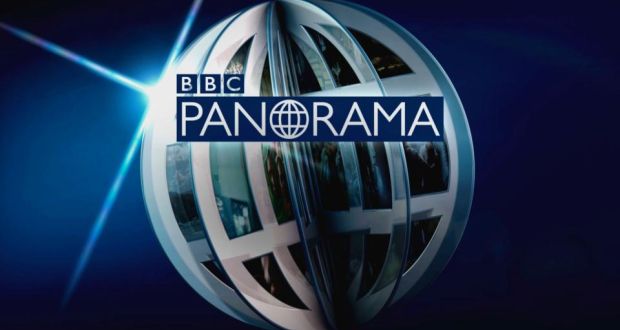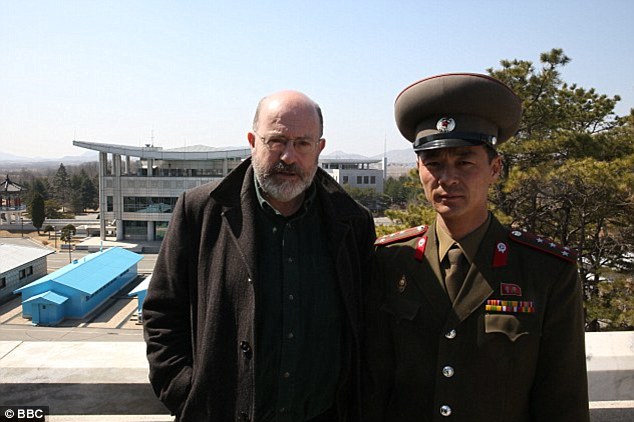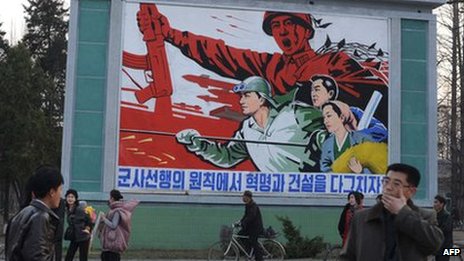Revealed: Two BBC Journalists Disguised As LSE Students To Get Into North Korea
A high-profile BBC documentary shot during an undercover trip to North Korea last year has ended with criticism from the public broadcaster’s oversight committee and an apology from the broadcaster.
The BBC apologised on Monday to a leading British university for sending two undercover reporters to accompany an academic trip to North Korea
A controversial BBC Panorama programme which sent an undercover team into North Korea, pretending to be a group of LSE students, has breached a number of editorial guidelines. A report by the corporation's Trust said the BBC failed to ensure the students were aware of the risks involved in the trip.
dailymail.co.ukThe LSE said the students had been told “a journalist” would accompany them, but it had not been made clear the BBC’s aim was to use the visit to secretly record footage for “Panorama”.
Image via irishtimes.comThe BBC has subsequently apologised to the university after the publication concluded LSE experienced 'unfair treatment' because it ended up being linked to the controversial investigation.
The publicly funded BBC joined the trip to North Korea for students and post-graduates of the London School of Economics (LSE) in March last year
Two undercover journalists - including the respected reporter John Sweeney - attached themselves to the group to gain access to the secretive state and film a documentary for Panorama, a current affairs programme. The general secretary of the LSE’s student union accused the BBC at the time of using the students as “human shields”.
Members of the group from the London School of Economics were put at risk, the Trust concluded
Image via DailyMailBBC Panorama reporter John Sweeney pretended to be a student when he went on a trip to North Korea to film a special programme
For the programme, North Korea Undercover, reporter John Sweeney spent eight days in the pariah state, joining an organised tour which had been planned by his wife, Tomiko Newson. When the film came to light, it was condemned by senior officials from the university who asked for the programme not to be shown but it was screened as planned in April 2013.
dailymail.co.ukThe LSE and the father of one of the students involved both complained to the BBC. The Trust concluded the BBC "failed to consider a number of important issues and risks, and failed to deal with them appropriately".
The father of one of the students, referred to only as "student x" by the BBC Trust, wrote to director general Tony Hall on 2 April 2013 – shortly after his daughter returned from the trip to North Korea and almost two weeks before the programme was broadcast.
In the finding released by the BBC Trust it said the complainant "alleged the BBC had failed to obtain informed consent from the students who travelled to North Korea and the risk that Mr X considered had been caused to them and the guides as a result of the BBC's deception".
The trust added: "Mr X referred to eight fairness and privacy guidelines in his letter. He also attached a letter from student X, asking for footage of her and photos and video taken by her not to be used in the programme, and raising concerns about the possible harm caused to the North Korean guides who accompanied the group."
The matter was referred up to the executive editor for TV current affairs, Clive Edwards, who told the complainant his daughter would not be used in the film but "said that the deception used to film the programme was justified by the public interest and proportionate".
However, the father of the student was dissatisfied and wrote again to Hall on 5 April, asking him to "satisfy himself before broadcast of the programme 'that the BBC behaved properly in approving the deception of these LSE students' [and] reiterated that student X had not provided informed consent, because she had not known about various facts including: the fact that three journalists were travelling instead of one, the journalists were television journalists rather than print journalists and that the BBC was involved. Mr X also complained about the risk posed to student X and the other students as a result of the trip".
The LSE chairman, Peter Sutherland, also wrote to Hall asking him to shelve the documentary, but the request was rejected. The day before it was broadcast Ceri Thomas, BBC News head of programmes, defended the corporation's actions on Radio 4's The World This Weekend on Sunday, saying the Panorama film was "an important piece of public interest journalism". Thomas added: "The material fact is that [the LSE students on the trip] were made fully aware of what the risks were if this journalist were to be discovered. The only people we deceived were the North Korean government."
The BBC says it has apologised to the university, but suggested there was a 'public interest' in airing the investigation
'There was a real public interest in making this programme in North Korea but, in the Trust’s view, the BBC failed to ensure that all the young adults Panorama travelled with were sufficiently aware of any potential risks to enable them to give informed consent. This was a serious failing, and the BBC is right to apologise to the complainants,' Alison Hastings, who chairs the Trust’s editorial standards committee, said.
dailymail.co.ukBBC News said it accepted the Trust's decision and said it had apologised to the LSE and the student - referred to as Student X - whose father had complained. But it said that at the time the programme was being made, it believed they were being treated 'fairly'. In a statement, BBC News said: 'We are pleased that the Trust found that there was a clear and strong public interest in commissioning and broadcasting the programme and that the correct referral procedures and processes were followed by the programme team and senior management.
'We also accept, however, that aspects of the BBC's handling of the project fell short in a number of areas, with the Trust finding against the BBC on four of its 21 rulings. In particular we have apologised to Student X for the finding by the Trust that insufficient information was given to her ahead of the trip about the involvement of the BBC journalists and the potential risks, which meant that Student X did not have sufficient knowledge on which to give informed consent. We have also apologised to the LSE for the Trust's finding that the programme created the risk of harm to the LSE's reputation.




